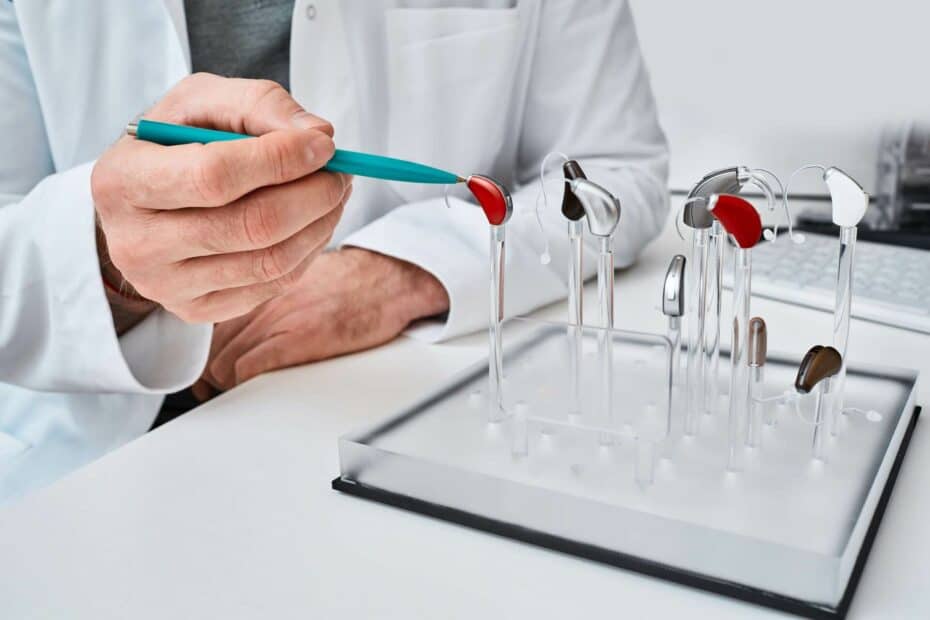Living with hearing loss can be challenging. Fortunately, modern technology has gifted us with amazing solutions like hearing aids. However, choosing the right hearing aid can be overwhelming. To help you wade through all the choices available, we’ve put together this handy guide to help you navigate the sea of options and select the perfect hearing aids for your needs. Let’s take a look.
Get a Professional Assessment
Before you embark on your hearing aid journey, it’s crucial to have a professional assessment of your hearing abilities. A hearing healthcare professional, such as an audiologist (we know where you can find some of them!) can evaluate your hearing loss and determine the type and degree of impairment you have. This assessment will serve as a vital foundation for selecting the right hearing aids that suit your specific needs.
Identify Your Lifestyle Needs
Hearing aids come in a variety of styles and feature sets, each catering to different lifestyle requirements. Consider your daily routine and the environments you frequently encounter. Are you often in noisy settings like restaurants or crowded public spaces? Do you enjoy outdoor activities or have a sedentary lifestyle? Understanding your unique lifestyle needs will help you narrow down the features and designs that will best enhance your hearing experience.
Explore Different Styles
Gone are the days when hearing aids were big, clunky devices. Today, they come in a range of styles that offer both functionality and aesthetics. Behind-the-ear (BTE), in-the-ear (ITE), and completely-in-canal (CIC) are some popular options. BTE devices are versatile and suitable for various types of hearing loss, while ITE and CIC aids are more discreet and suitable for mild to moderate hearing loss. Consider your comfort, cosmetic preferences, and the level of amplification you require to find the style that suits you best.
Assess Connectivity Features
In our digitally interconnected world, connectivity features have become increasingly important for hearing aids. Some models offer Bluetooth connectivity, allowing you to wirelessly connect with your smartphone, TV, or other compatible devices. This feature enables seamless audio streaming and control over your hearing aids using smartphone apps. If you’re tech-savvy and desire enhanced connectivity, be sure to explore hearing aids with these advanced features.
Battery Life and Maintenance
Battery life and maintenance requirements can significantly impact your overall experience with hearing aids. Some devices use disposable batteries, while others have rechargeable options. Consider how often you’re willing to change batteries or charge your devices. Additionally, inquire about maintenance and cleaning procedures to ensure you can properly care for your hearing aids for optimal performance and longevity.
Seek User-Friendly Controls
When selecting hearing aids, user-friendliness is key. Look for devices with easy-to-use controls and intuitive interfaces. Volume adjustments, program changes, and other settings should be easily accessible. Some models even offer smartphone apps for more convenient control. Opting for user-friendly features will make your hearing aid experience seamless and hassle-free.
Consider Budget and Insurance Coverage
Hearing aids vary in price, so it’s essential to consider your budget. Remember, the cost goes beyond the initial purchase; you may need to factor in ongoing maintenance and potential repairs. Check if your health insurance covers hearing aids or if there are any assistance programs available. It’s worth exploring all your options to find the most suitable and affordable solution for your hearing needs.
Final Thoughts
Selecting the right hearing aids is a significant step towards reclaiming your auditory world. By considering the different factors that we have looked at today, you should be well equipped to begin your journey. Hearing aids are not a one-size-fits-all device. Be sure to take your time, ask questions, and consult with professionals who can guide you through the process.
We hope you found this information on hearing aids and hearing health informative and useful. We know that addressing hearing related issues isn’t always easy or straightforward, so, If you have any other questions regarding your hearing health or would like more information on the topics covered in this or any of our articles, please feel free to contact us. Our team of hearing professionals are ready to help you with all of your hearing related needs.

